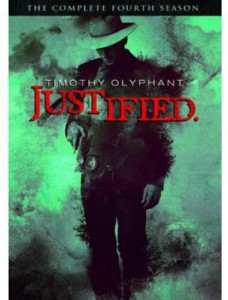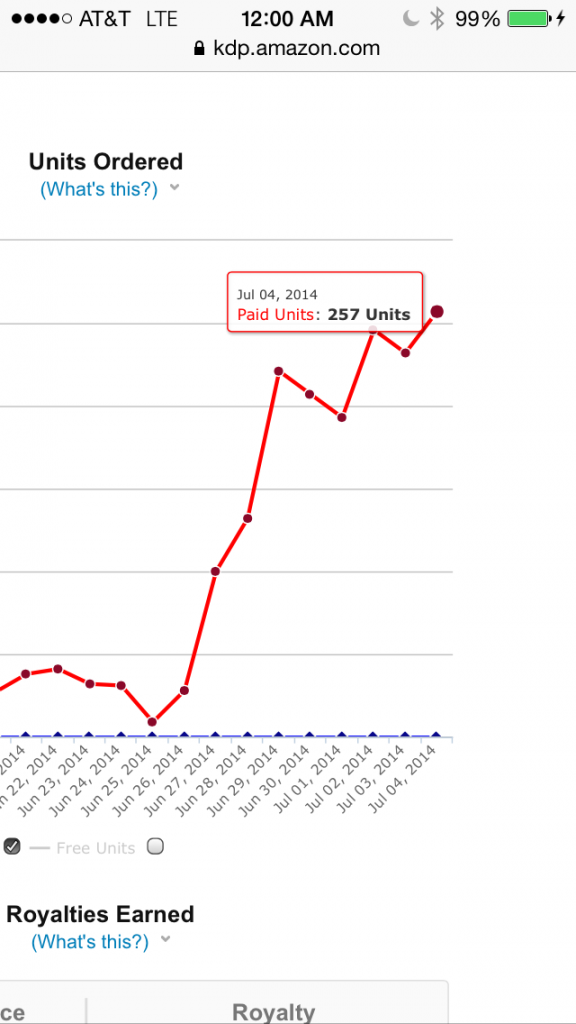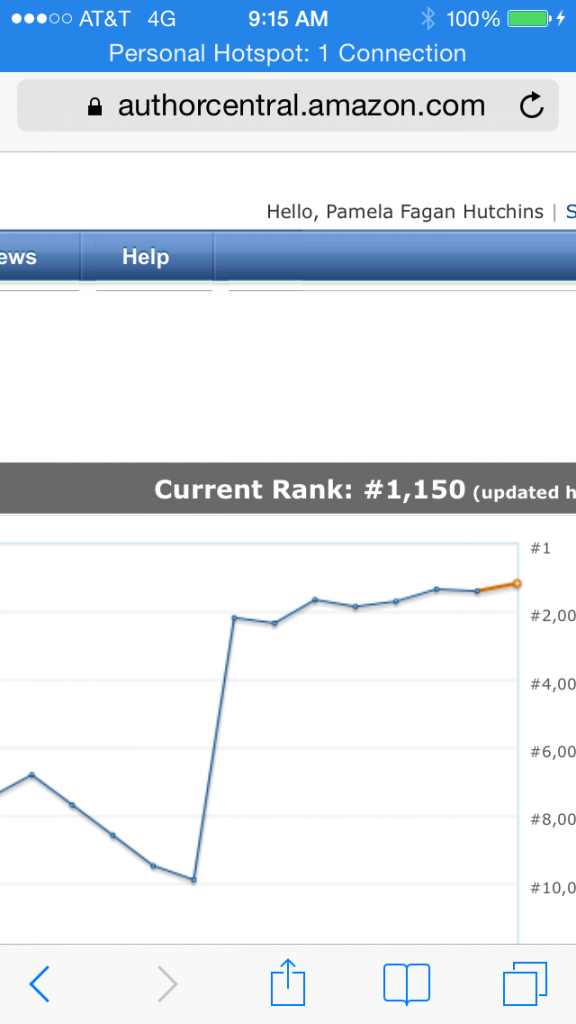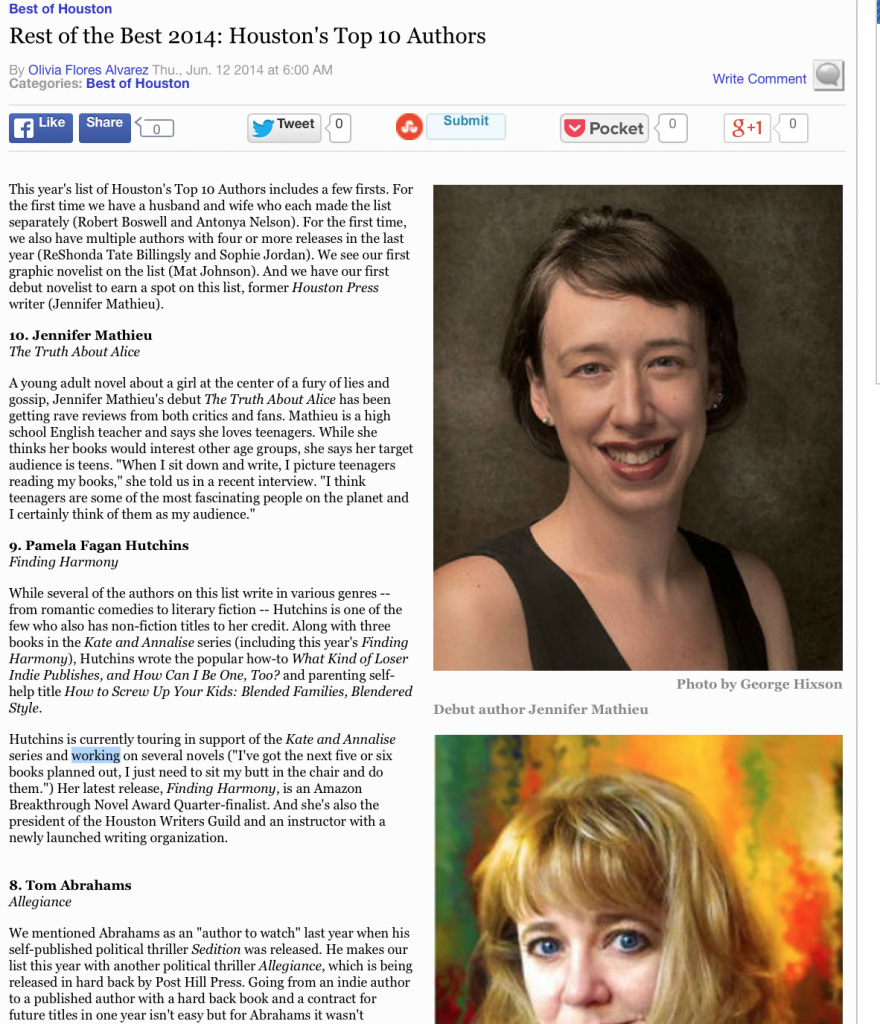 If you’ve ever tried to load books for sale on Google Play, you know it ain’t easy. In fact, it’s by far the hardest venue to upload onto, and I don’t think Apple iBooks is a walk in the park. I tried it once about a year ago, and I booted. Then Molly Greene posted this very helpful blog, and, while the directions still didn’t work completely, I was able to figure out the 2-3 additional steps/need-to-knows and ended up successful. Rather than just regurgitate her instructions, I’d suggest you use her post as your general guideline for uploading. Then, when you hit a snag, which you will, come back here, and I’ll post my additional need-to-knows in a postscript to this blog post (that means scroll to the bottom, people).
If you’ve ever tried to load books for sale on Google Play, you know it ain’t easy. In fact, it’s by far the hardest venue to upload onto, and I don’t think Apple iBooks is a walk in the park. I tried it once about a year ago, and I booted. Then Molly Greene posted this very helpful blog, and, while the directions still didn’t work completely, I was able to figure out the 2-3 additional steps/need-to-knows and ended up successful. Rather than just regurgitate her instructions, I’d suggest you use her post as your general guideline for uploading. Then, when you hit a snag, which you will, come back here, and I’ll post my additional need-to-knows in a postscript to this blog post (that means scroll to the bottom, people).
Why did I go to all the trouble I did to get on Google Play? Mainly because Bookbub promotes Google Play links (I love promotions that target sites beyond Amazon, and one day soon I’ll give you a run down on all my favorites), and because I’d heard that it’s a fast-growing sales site that can quickly become a significant part of an author’s revenue. As to the latter, I had no solid proof. But there was only one way to find out for myself and my ebooks.
So I loaded all my books onto Google Play. Immediately I appreciated that they allowed me to offer free ebooks. I knew of no other way to get sales traction on a new venue than to entice readers with a few free books. One point Molly made in her post is to price your books at a minimum 25% above your retail price on Kindle. Don’t fail to do this, because Google discounts your price, and then Amazon price matches. In fact, I found I had to raise my price even further on Google Play to keep them from undercutting Amazon, so keep an eye on your actual Google retail price.
I had a few weeks before my Bookbub promotion ran, and very modest downloading of my free novel and short story occurred during that time. At that point, I was selling about 35-40 ebooks a day across all sales venues. Then Bookbub ran. Since my Bookbub day (which promoted my free novel Saving Grace), I have averaged 350 ebooks sold per day across all sales venues, and 7838 free downloads per day. And I started making sales on Google Play. Mind you, my Google Play sales are an average of three per day, or 0.4% of my sales in any one day. But over one year, three sales per day is 1095 ebooks, and for me that translates into royalties of more than $2200. (Now, I just have to sustain those sales, or something close to them, to see that kind of revenue stream!) Also, I had a high of 774 free downloads in one day and now am seeing about 35 per day.
For me, the answer is YES, Google Play is worth it.
The bigger question, I guess, is whether I would be selling at all on Google Play without my Bookbub day. And that gets back to all that I have done to position myself for that particular Bookbub day (my third one) in the first place. And as I think back on my efforts and strategy, I can’t untangle the ball of yarn and isolate any one factor as determinative of my current sales, so the best I can do is tell you that even if it were three years ago, and I was just starting out, I would load my books onto Google Play in hope of building a market through them while I started laying the groundwork that would eventually position my books for the kind of traction they now enjoy.
How about you guys–any other pointers for or thoughts on Google Play? Any success stories to share?
Pamela
p.s. Things you need to know to upload successfully to Google Play: When initially setting up a book, Molly advises you to Save when it’s in draft form. This is good advice. I encountered one problem however. In doing my 10 ebooks, each one only gave me an option of Ready to Publish when I first created them and was on their General Details page. On my first ebook, that’s what a clicked. Yikes! Thereafter, I clicked refresh on my browser, and that Ready to Publish button changed to a Save Button. Sweet!
If you accidentally upload too many files–let’s say you upload an epub with an error and then a perfect epub–Google Play works with the last uploaded file of that type. You don’t delete the previous files.
Sometimes my Kobo epubs worked, and sometimes they didn’t. Sometimes my Smashwords epubs worked, sometimes they didn’t. Same for Nook. Same for even my clean “Pressbooks” epubs. You can’t argue with Google Play, however, so just keep trying files until you get one that works. Don’t know how to download your epubs from these sales sites? It’s not hard. Consult help on each site while you’re logged into your account, or just carefully peruse the screens associated with the ebook in question. I learned I could use an epub-checker software to ensure I had good files, and that saved me some heartache. Also, for whatever reason, I was able to upload files for a friend from my machine that didn’t work for her on her machine. Moral of the story: if at first you don’t succeed, try try again.
When I had finished my ebook, I had to click on the Processing button to find the option to Activate it for Google Play. I sat and stared at the screen for a long time before I figured that one out.
Pamela Fagan Hutchins, President of Houston Writers Guild, is an employment attorney and workplace investigator by day who by night writes award-winning and bestselling romantic mysteries (perma-freeSaving Grace, Leaving Annalise, Finding Harmony) and hilarious nonfiction (How to Screw Up Your Kids, What Kind of Loser Indie Publishes?, and others). She is passionate about great writing and smart authorpreneurship. She also leaps medium-tall buildings in a single bound, if she gets a good running start. Visit her website http://pamelahutchins.com, or follow her on Facebook http://facebook.com/pamela.fagan.hutchins.author.
employment attorney and workplace investigator by day who by night writes award-winning and bestselling romantic mysteries (perma-freeSaving Grace, Leaving Annalise, Finding Harmony) and hilarious nonfiction (How to Screw Up Your Kids, What Kind of Loser Indie Publishes?, and others). She is passionate about great writing and smart authorpreneurship. She also leaps medium-tall buildings in a single bound, if she gets a good running start. Visit her website http://pamelahutchins.com, or follow her on Facebook http://facebook.com/pamela.fagan.hutchins.author.








